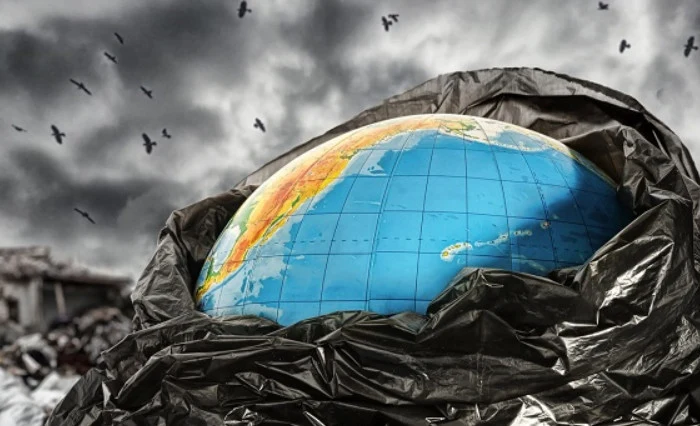As our planet confronts an array of ecological emergencies, it’s evident that the measures taken over the last fifty years have largely missed their mark. Fresh research underscores the need to shift our focus to what truly fuels these emergencies—deep-rooted, unsustainable human habits.
For half a century, dedicated scientists have been diligently charting the perilous journey where human consumption surpasses the Earth’s ability to replenish—dubbed “ecological overshoot”. This imbalance has unleashed a host of challenges, with climate change being a predominant manifestation.
The early alarms set off by the manifestations of this ecological overshoot may have been too optimistic in their expectations. There was an underlying assumption that individuals and governing bodies, when confronted with threats that jeopardize our very existence, would act rationally, transforming their behaviors dramatically.
This perspective harkens back to the pioneering work of a group of young researchers in the 1970s. Their landmark publication, “Limits to Growth”, utilized computer models to vividly depict the potential ramifications of maintaining the then-current trajectory of economic growth. The projections eerily foreshadowed the ecological and societal chaos we’re navigating today.
The visionaries behind the study anticipated that unveiling their findings would serve as a wake-up call, prompting society to recognize the precarious path we were on and accordingly adjust our consumption patterns. But contrary to their expectations, their groundbreaking work faced disregard, and the world continued its set course, largely unchanged.
Addressing the Root of the Issue: Our Behavioral Crisis
Over the last half-century, a barrage of alarming reports, passionate speeches, and daunting data has been presented, each becoming progressively dire in their projections. Yet, the trajectory of economic growth remains unchanged.
In 1992, a profound message from the global scientific community emerged in the form of the “World Scientists’ Warning to Humanity”. This open letter, endorsed by hundreds of scientists, painted a vivid picture of the environmental degradation stemming from human actions. Notably, by 2017, the urgency had intensified. A follow-up notice, backed by thousands of scientists, bore a chilling proclamation:
Unless there’s immediate and significant action, we’re on a path leading to devastating biodiversity losses and unprecedented human suffering.
Despite this, many dedicated environmental scientists felt that they were putting their best foot forward to stave off this looming “ghastly future”. They meticulously drafted a series of actionable measures, spanning from effective human population management to curbing per-capita consumption of fossil fuels, meat, and other finite resources. Disappointingly, the world saw minimal tangible changes.
Our latest research offers a fresh lens to this problem. In partnership with strategists specializing in behavior changes from the marketing realm—who themselves grew increasingly disillusioned with the outcomes of their efforts on both human and planetary well-being—we dived deep into the behavioral underpinnings of the ecological overshoot.
A striking statistic emerges at the heart of our study: a mere 16% of the world’s wealthiest population accounts for a staggering 74% of excessive energy and material consumption. This is more than just numbers; it’s emblematic of a profound behavioral crisis. Rooted in this are countless individual decisions, ranging from resource acquisition to rampant wastefulness, to an insatiable drive for wealth and prestige.
Though some of these choices might have been adaptive and beneficial in our evolutionary history, they’re disastrously ill-suited for our interconnected global economy today. What was once advantageous has mutated into detrimental habits, endangering the intricate tapestry of life on our planet.
The Mirage of Endless Growth
As we face the enormity of climate change—a mere facet of the broader ecological overshoot—our present-day efforts appear to be treading water. Notably, in the previous year, carbon dioxide emissions globally surged to unprecedented levels, spurred partly by the resurgence of air travel post the COVID pandemic.
The heart of the issue, as we contend, is attempting to address a rapidly escalating crisis with interventions that are inherently sluggish. Instead of chasing our tails addressing the myriad symptoms of ecological overshoot, we should be concentrating on the root causes—namely, the behavioral triggers that led us to this precipice.
Consider the celebrated drive to transition to renewable energy as a solution to climate change. This seemingly promising shift is essentially just swapping one energy source for another, without tackling the underlying, ever-increasing hunger for energy which catapulted us into this overshoot scenario.
Such strategies, although well-intentioned, fall short. They’re gradual, consume vast resources, are cumbersome, and fundamentally miss the mark. Instead of striving for a recalibration of consumption, these approaches tenaciously cling to the status quo. Entrapped in this “growth delusion”, there’s a misguided optimism that technological advances will magically exempt humanity from the imperative to adapt and evolve.
A Unified Emergent Approach to Crisis Management
Bridging the widening chasm between scientific knowledge, economic paradigms, and the general populace’s grasp of these interconnected challenges necessitates a harmonized, cross-disciplinary response.
Interestingly, the very industries—marketing, media, and entertainment—that have historically played pivotal roles in steering human behaviors towards rampant consumption and waste, might paradoxically hold the key to reshaping these behaviors to prevent ecological disaster. If the tactics that propelled consumerism to its zenith can be harnessed correctly, they could also inspire a cultural shift towards sustainable living.
Gaining a holistic comprehension of the behavioral crisis is imperative, especially when one factors in the sway of influential entities and entrenched interests in a capitalist framework. The Herculean task ahead isn’t merely understanding these dynamics, but actively neutralizing and, where possible, leveraging them to reconstruct the economic landscape and initiate restorative actions.
Addressing this requires a collective endeavor, pulling together experts from varied disciplines, to pinpoint optimal strategies that can catalyze a swift global embrace of new standards pertaining to consumption, population growth, and waste management. The stakes couldn’t be higher: at the heart of our endeavors lies the preservation of the intricate web of life on our planet.




















